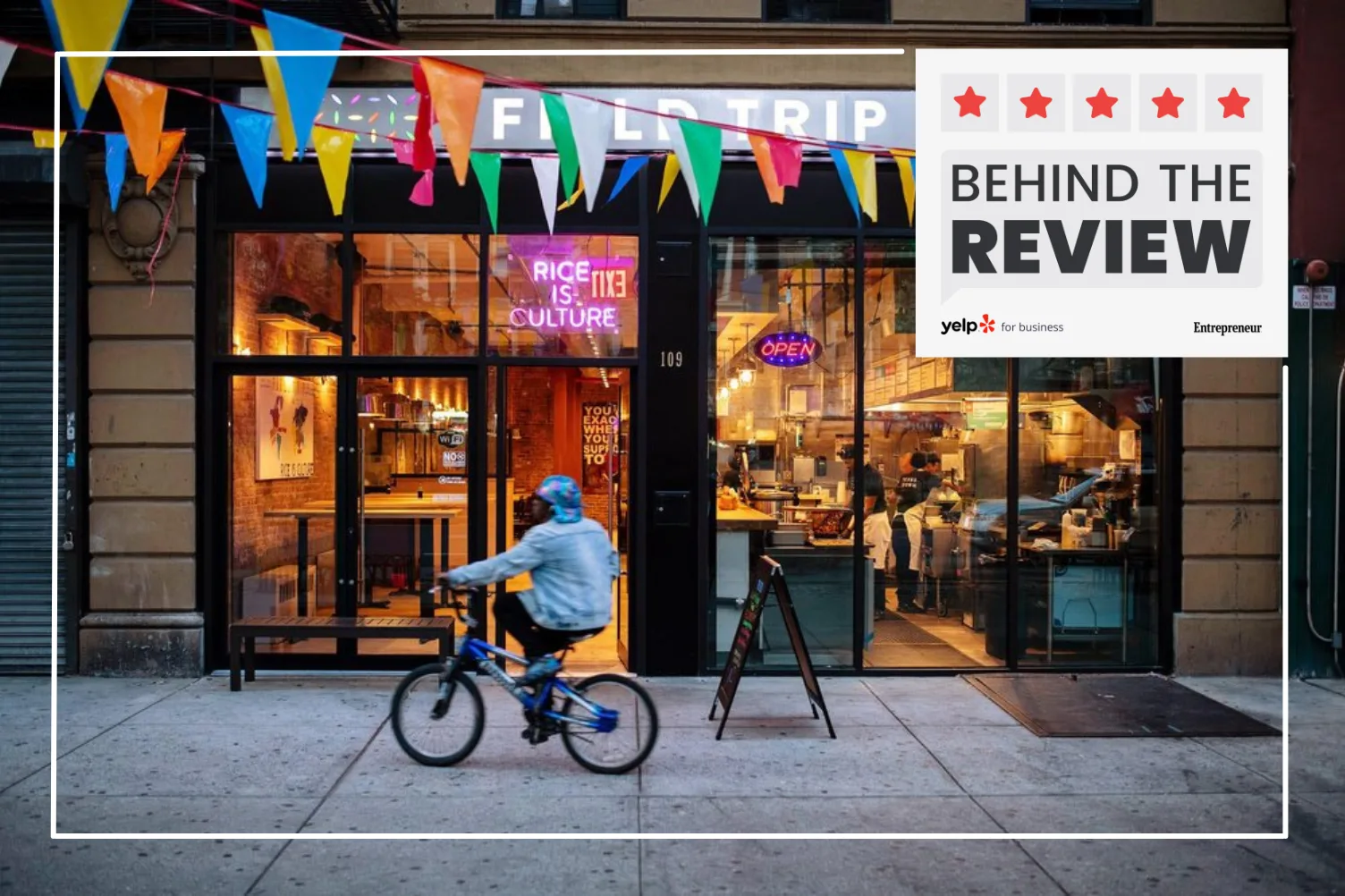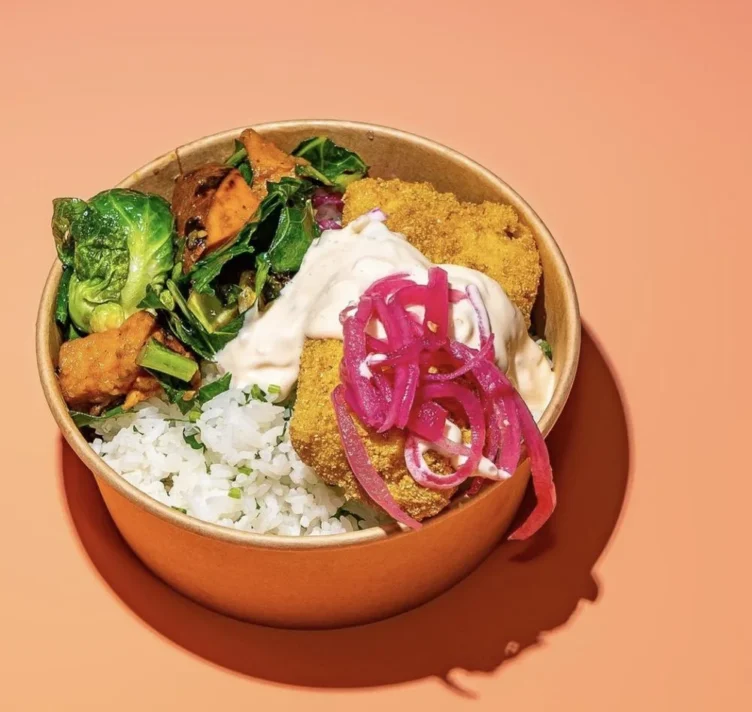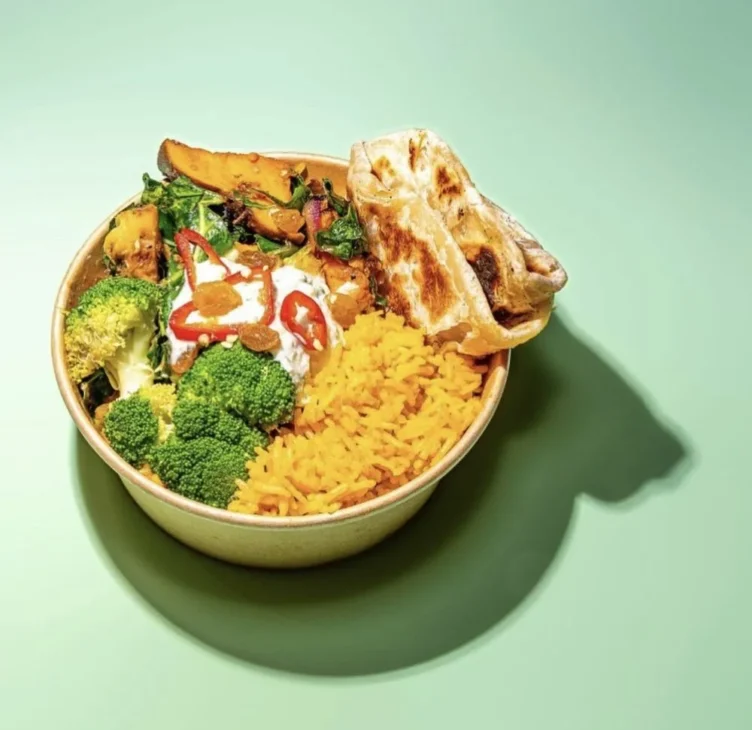Why Chef JJ Johnson changed his business model based on reviews

Chef JJ Johnson’s fast-casual rice bowl chain, FIELDTRIP, has never been conventional. The James Beard Award-winning chef chose to open his first location in Harlem, with the goal of bringing healthy options to a neighborhood that has limited access to fresh food—despite receiving pushback from stakeholders.

“Through[out] my career, looking at communities of Black and brown folks and talking to developers and landlords in the search, [people were] always saying that these communities don’t want this type of food. And that’s not true,” he said.
Chef JJ now embraces the label of “disruptor,” which to him means providing people with what they need—not what others think will be successful. “I chose Harlem [for my first location] because I wanted to have people that look like me to consciously eat better, to have a choice to eat better,” he told attendees of Yelp’s 2023 Black in Business Summit in his keynote address.
Chef JJ’s drive to question the status quo applies to his own business too: He’s constantly evolving his business model to better serve the community. Learn why he’s made changes to FIELDTRIP based on feedback and how he continues to defy expectations as an entrepreneur.
Leaning into service and hospitality
FIELDTRIP receives mainly positive reviews from Yelp users, who rave about the “consistently flavorful, high quality, and healthy meals.” But when Chef JJ first opened in Harlem, he said he received some critical feedback about the customer service. Even a few complaints were unacceptable for Chef JJ, who wants his guests to feel as welcome and comfortable as they would in a full-service restaurant. So the chef—who regularly reads and responds to reviews—took note and adapted FIELDTRIP’s strategy.
“When I did market research early on, most people were saying they weren’t treated nice, that people were rude, things of that nature,” Chef JJ said. “ I didn’t want to be categorized in that area. So we always lead through that, really leaning into service and hospitality.”
Now, every guest who enters FIELDTRIP today is greeted with a cheerful “Welcome to FIELDTRIP” and sent off with, “See you next trip!” “We firmly believe in hospitality,” Chef JJ said. “Coming from a full-service experience, hospitality is key—when you’re greeted at the door, how you’re treated at the table. So [we’re] trying to really put that into fast casual or ‘fast food.’”

Pivoting to online ordering
Initially, FIELDTRIP took orders over the phone, when fewer guests were dining in person due to the pandemic. It’s since moved the business to an online-only ordering system, where customers place orders on the website or on an app at the brick-and-mortar. According to Chef JJ, this shift was intended to improve operations. He learned through experience that online ordering helps eliminate errors and free up staff to focus on the guest experience.
“We are learning through technology,” Chef JJ said. “We encourage people to order online, or now on our app, so that it is easier for them, and we also don’t mess up your order [in case] we don’t hear you properly. We keep the phone in place for people who have mistake orders—maybe we forgot to put something in the package, maybe the delivery guy went to the wrong place.”
This system has an added bonus: By embracing online ordering, FIELDTRIP can also capture crucial customer data, such as how often guests come in and which dishes are ordered the most. Chef JJ’s team uses this information to tweak the menu and build a rewards program for frequent customers—they even follow up personally if they haven’t seen a top customer in a while. “When you look at a lot of the brands that are growing, you [realize] need that data. You need to know who your customer is,” Chef JJ said.
Making room for improvement
Early on, Chef JJ realized customer feedback—particularly reviews—would be an important part of FIELDTRIP’s evolution. “We try to respond to everybody’s reviews,” he said. “We’re very thankful for reviews, but [we look for] criticism that makes sense, criticism that [allows] us to become better.
“If somebody has a bad review, we’re reaching out. If somebody has a good review, we say: ‘Thank you very much. See you next trip! Hope to see you next time.’ But for the most part, [I believe] reviews are supposed to help the restaurant get better.”
This standard helps Chef JJ approach critical reviews without taking them personally. He always engages with upset customers and owns up to mistakes, but he only applies feedback that can benefit the business.
For example, Chef JJ said a customer recently left a review saying they wished they could create their own bowls. “It’s like, okay, maybe [we do] a create-your-own-bowl Friday,” he said. “It allows us to really lean in and understand what people want. Those things allow us to be better.”
These lessons come from an episode of Behind the Review, Yelp & Entrepreneur Media’s weekly podcast. Listen below to hear from Chef JJ, or visit the episode page to read more, subscribe to the show, and explore other episodes.
Photos from FIELDTRIP on Yelp


